Psychologists for Peace
Children's Peace Literature Award
The PFP Children's Peace Literature Award encourages the dissemination of information related to peaceful means of resolving conflict and promoting peace at the global, local and interpersonal level.
Some might ask: Why have a literary award for children?
As the 1991 award winner, Libby Gleeson says in Dodger:
‘...the majority of conflicts in the cartoon world are resolved by quick fix violent means. Literature can be different.'
This is because characters in books, by inviting readers to enter imaginatively into the story, can suggest alternative solutions and encourage discussion of values and beliefs. In such ways, literature helps to shape the future.
During the twenty-plus years since the inauguration of the award, focus has been given to writers with vision who have been able to stimulate children and adolescents to think, to dare, and to imagine taking control of their lives, believing that peace is both possible and desirable.
Past Children's Peace Literature Award Winners
- 2023 winner
- 2021 winner
- 2019 winner
- 2017 winner
- 2015 winner
- 2013 winner
- 2011 winner
- 2011 winner
- 2009 winner
- 2007 winner
- 2003 winner
- Winners prior to 2003
2023 winner
The winner of the 2023 Award is: No Words by Maryum Mater (Pan MacMillan) was selected from the short list of six books. Ms Prescott (chair of the judging panel) said the judges felt the types of thoughts, feelings, behaviours, and relationships demonstrated by the main characters help to promote peace at the global, local and personal levels. Hero (yes that really is her name) and her bestie, Jaz, befriend silent student Aria (a 12 year old Iranian refugee). They want to stop the school bully picking on him, but are unsure about how to intervene. Hero discovers Aria writes poetry, and looks for a way to understand him and help him find his voice. Eventually Hero and Jaz learn about Aria’s loss of his mother, friends, and home, and his traumatic escape from Iran. Their friendship and support help Aria to overcome the hate that had stolen
2021 winner
The winner of the 2021 Award is: How to Write the Soundtrack to Your Life by Fiona Hardy (Affirm Press) was selected from the short list of seven books. Ms Prescott (chair of the judging panel) said the judges found the book entertaining and thought provoking; with a range of characters, both child and adult, who show supportive relationships and who work cooperatively to problem solve and resolve the various conflicts. Murphy is a very shy Year 6 student with a talent for writing keyboard music. She is too shy even to allow anyone to hear her songs, until she is required to play to her class at school. When her music begins to be performed by a local band, she is determined to find the music thief. Lead by the feisty Zara, Murphy’s supporters identify the thief and, along the way, Murphy finds her voice.
2019 winner
Missing Marvin Sue deGennaro (Scholastic)
The winner of the 2019 award is Sue DeGennaro for : Missing Marvin.
When is a joke not a joke? Marvin and his friends work for Baggage Handlers United. Marvin loves his job but his friends love to play practical jokes. The jokes are usually at Marvin’s expense. After one joke too many, Marvin hides away but finds that the problem does not go away. He realises he needs to tell his friends how he really feels, so Marvin musters his courage and tells them what is wrong. They in turn have realized that they have gone too far with their “jokes”. This funny and gentle picture book deals with themes of bullying, friendship and courage to resolve conflict in a peaceful way.
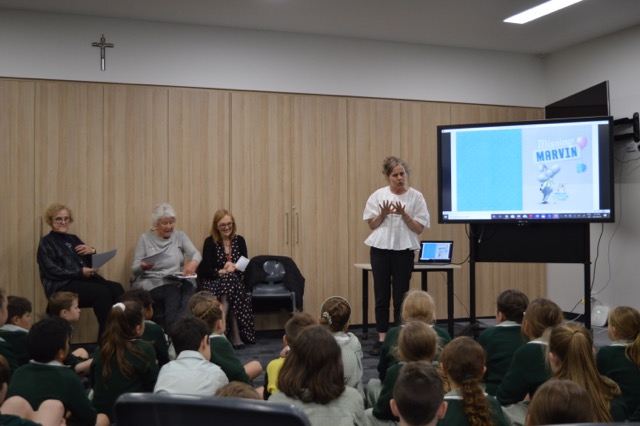
Sue was present to receive her award and engaged with the students about the book and about being an author
2017 Winners
2017 Children’s Peace Literature Award was awarded to Boy, a picture book by Phil Cummings and Shane Devries. A story about a young deaf boy who brings peace to his village by calling for adults to reflect on how to think about conflict differently, Boy was chosen from a shortlist of three books that included Blue Sky Yellow Kite (Janet A Holmes, illustrated by Jonathan Bentley) and Wombat Warriors (Samantha Wheeler).
The South Australian judges described Boy as a ‘delightful and powerful picture book,’ recognising the book for offering children peaceful models for resolving conflict upon which to base their own behaviours.
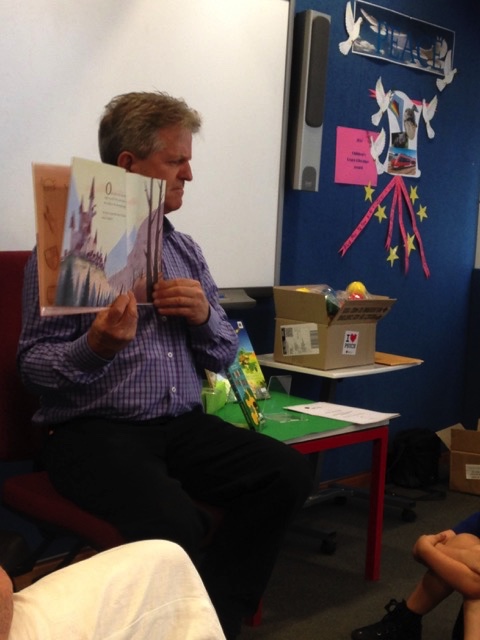
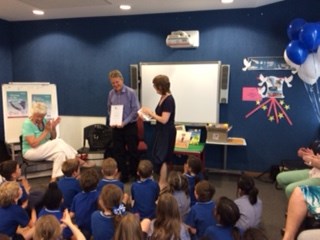
Phil Cummings reading the winning book Shelley Rogers the APS SA Chair presenting Phil
with his certificate
2017 Short list
2015 winners
Nicole Hayes for One True Thing - Random House, Australia
The Children's Peace Literature Award - 2015 Short list
2015 Speech delivered at the award ceremony for the Children's Peace Literature Award
2015 Thank you speech delivered at the award ceremony by Nicole Hayes
2015 Thank you speech video by Nicole Hayes
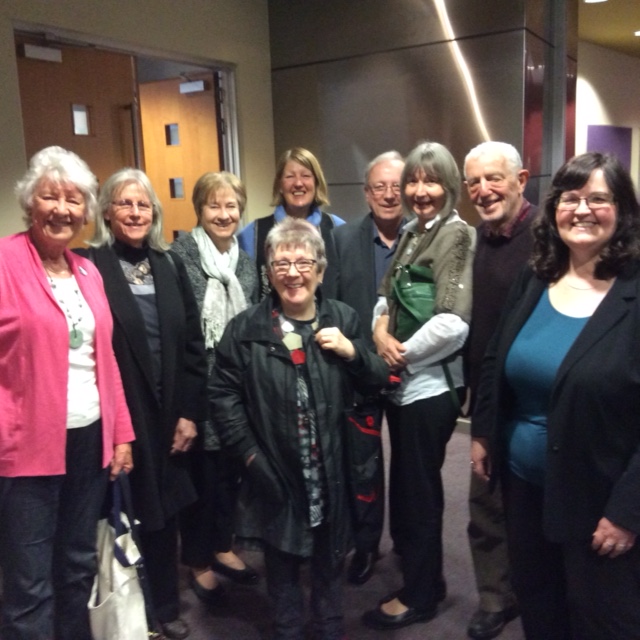
Psychologists for Peace South Australia and the 2015 Judging Panel
2013 winners
Junior readers:
Aaron Blabey for The Ghost of Miss Annabel Spoon - Penguin Group, Australia
Older readers:
Barry Jonsberg for My Life as an Alphabet - Allen & Unwin
- Thanks you speech by Barry Jonsberg (Video download 82MB)
- The Children's Peace Literature Award – 2013 Short
- Judging panel Member Kate Prescott watching Barry Jonberg's acceptance speech
2011 winner
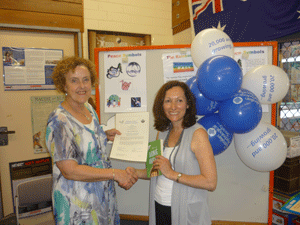 The winner of the 2011 Children's Peace Literature Award was announced on 8th November 2011 at a gathering at Parafield Gardens Primary School, South Australia hosted by the year six students. The author of the winning book, Arnie Avery, was present and answered questions from the students after the presentation. Parafield Gardens Primary is a United Nations Save the Children Peace School.
The winner of the 2011 Children's Peace Literature Award was announced on 8th November 2011 at a gathering at Parafield Gardens Primary School, South Australia hosted by the year six students. The author of the winning book, Arnie Avery, was present and answered questions from the students after the presentation. Parafield Gardens Primary is a United Nations Save the Children Peace School.
The winner Arnie Avery, by Sue Walker, was selected from over 90 entries of books for children published between 1 July 2009 and 30 June 2011. The convener of the judging panel, Kate Prescott, said the judges were impressed by its literary merit, engaging style, and the main character’s capacity for self-analysis and effective non-violent handling of conflict 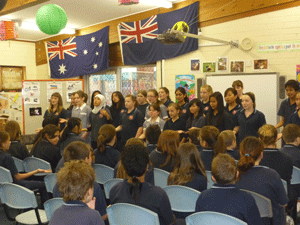
Summary of the Winning Entry:
Arnie Avery by Sue Walker (Walker Books)
Arnie is a boy who is about to turn 13 in a family still struggling with the accidental death of his older brother. There is conflict within the family as they are all trying not to upset each other but in the process, feeling isolated. Arnie also has to decide on his response to the school bully. There are excellent descriptions of the fear of expected physical pain, and of Arnie's capacity for self-analysis. He initiates solutions by accepting help from his father to talk about the things that are troubling him; his best friend Belly is also an important resource. His solution to the bullying offers an effective alternative to violence and one which maintains his self-respect and that of his peers.
Download Winner’s acceptance speech ![]()
2011 Shortlist
The 2011 shortlist, selected by a combined panel of psychologists and children’s literature experts, comprises books appealing to a wide range of ages from primary school to young adult:
Alice Miranda at School - Jacquie Harvey (Random House)
Arnie Avery - Sue Walker (Walker Books Australia)
I Found a Friend - Beth Norling (Penguin)
Ishmael and the Hoops of Steel - Michael Gerard Bauer (Omnibus)
Matty Forever - Elizabeth Fensham (University of Queensland Press)
Shrieking Violet - Emma Quay (Scholastic)
What Now Tilda-B? – Kathryn Lomer (University of Queensland Press
Download shortlisted book summaries ![]()
2011 nominations
Conditions for acceptance of nominations
- the book is intended for children and has been published between 1 July 2009 and 30 June 2011
- the author should be Australian or normally resident in Australia;
- the book's theme or main character(s) should encourage the peaceful resolution of conflict and/or promote peace at the global, local or interpersonal level;
- entries must be lodged by 22 July 2011
- the judges' decision is final - no correspondence will be entered into;
- the judges shall have the discretion to divide the prize between up to three books that they consider to be of merit. If, in the opinion of the judges, no entry is worthy of the award, no winner shall be chosen;
- nominations will be accepted only from the publisher or author/illustrator;
- two copies of the book with the nominator's name and address, publication date and an entry donation of $15 per title (cheque payable to Psychologists for Peace, South Australia), is to be forwarded to:
Convenor Children's Peace Literature Award
Psychologists for Peace
47 Ballville Street
Prospect, South Australia 5082
Award winners and shortlisted authors will be selected by a combined panel of psychologists and children's literature experts. A shortlist will be announced by November 2011 and the award will be presented at a public gathering in South Australia.
2009 winners
The winners of the 2009 Children's Peace Literature Award were announced on 21 October 2009 by The Minister for Education, Hon Jane Lomax-Smith MP at the launch of the Human Rights Learning in Action Showcase.
Audrey Goes to Town and Winter of Grace were selected from seven short-listed books and from more than 100 entries of books for children published between 1 July 2007 and 30 June 2009. The judges felt that these two books, one for primary readers (7 - 11 years) and one for teenagers, best met the criteria for the award.
Winning entries
|
Audrey Goes to Town by Christine Harris (Little Hare Books) Audrey and her family temporarily relocate to Beltana when Audrey's mother is expecting another baby. They board with Mrs. Patterson, known locally as Patterson's Curse (a noxious weed). She is a prickly woman who has strict rules and a list of dos and don'ts for the children. When Audrey's mother is taken suddenly to hospital, Mrs. Patterson declares that Audrey has become her "project". She wants to ensure that Audrey learns good manners, how to knit and how to behave like a lady. However she does not anticipate Audrey's perceptive response, "And you're mine. I'm looking for your good side." A situation which could have developed into unpleasantness is slowly changed by Audrey's beguilingly honest, direct, humorous and compassionate approach to her carer. Audrey makes an effort to please. She is kind and thoughtful but does not allow herself to become a victim. Audrey acknowledges Mrs. Patterson's kind gestures and is prompt to express her gratitude. Indeed warmth and generosity are modeled by the Beltana community. Audrey's perseverance is rewarded when she realizes that Mrs. Patterson's grimness is mainly due to the sorrows she has experienced in her life. Mutual trust and appreciation develop. As Audrey says, "At first it was hard to find things on your good side. But then it got easier. You've got one, all right". |
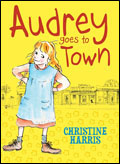 |
|
Winter of Grace by Kate Constable (Allen & Unwin) This book deals with the unusual but important theme of the role of religious affiliations for young people trying to understand the world and human relationships. Readers are gripped by an engaging story about two Year 11 girls who keep us intrigued with action and controversy and what might happen next. The main character Bridie is searching for a set of beliefs or ideas to make sense of life. Her encounter with Christian fundamentalism brings her into conflict with her mother and her best friend Stella, who each have reasons for rejecting organised religion. A variety of religious beliefs is portrayed, and Bridie's quest is not over by the end of the book. The underlying message is that people with different religious beliefs including atheism can all be sincere seekers after truth and an honorable code of behaviour. Bridie comes to realise she needs to think and explore for herself. Her reconciliation with Stella is based on recognising that friendship and trust allow people to disagree about religious beliefs without damaging their relationship. The model of respect for diverse belief systems and their adherents is a timely one in our age. |
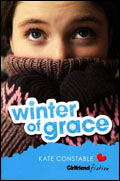 |
Shortlist
Audrey Goes to Town - Christine Harris (Little Hare Books)
Cassie - Barry Jonsberg (Allen and Unwin)
Finding Darcy - Sue Lawson (Black Dog Books)
Ishmael and the Return of the Dugongs - Michael G Bauer (Omnibus)
Josie and the Michael Street Kids - Penni Russon (Penguin)
Pearl Barley and Charlie Parsley - Aaron Blabey (Penguin)
Winter of Grace- Kate Constable (Allen and Unwin)
2007 winner
Congratulations to Michael Gerard Bauer for his book Don’t Call Me Ishmael, the winning entry for the 2007 Children’s Peace Literature Award.
Don’t Call Me Ishmael was selected from seven short-listed books and from more than 100 entries of books for children published from August 2005 to July 2007. 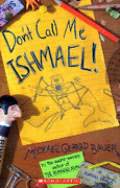
The judges were impressed by the book’s literary merit, engagingly humorous style and the main character’s empathy and support for others and ability to put himself into his adversary’s shoes in order to resolve conflict. Don’t Call Me Ishmael was the stand out winner of the Award.
Prue Blaikie, from SA PFP says:
What we were looking for was a book that was both appealing to children, and, demonstrated that they can, through their actions, resolve conflicts in positive ways for all involved ie a book that children will want to read and which also provides a model on which children can base their own behaviour. This book had it all – it was funny, engaging, well written and the main character, Ishmael, actively chose to behave in ways which would help rather than damage both his friends and his adversary. It was the unanimous and clear choice by all of the eight judges on the panel.
The winning and short-listed books were selected by a combined panel of psychologists and children’s literature experts for their literary merit and for demonstrating a constructive, non-violent approach towards the resolution of conflict.
- Download Winner’s Acceptance Speech
 (47kb)
(47kb) - Download article from the Adelaide Advertiser
 (580kb)
(580kb)
More information about the winning author, Michael Gerard Bauer, can be found at:
http://www.scholastic.com.au/common/books/contributor_profile.asp?ContributorID=527&channel=
2007 Children’s Peace Literature Award Shortlist
Congratulations to the authors of the following books which were short-listed for the 2007 Children’ Peace Literature Award:
-
The Goldseekers by Greg Bastian (Angus & Robertson)
-
Don’t Call me Ishmael by Michael Gerard Bauer (Omnibus)
-
The Story of Tom Brennan by J.C.Burke (Random House)
-
One Whole and Perfect Day by Judith Clarke (Allen & Unwin)
-
Born to Bake by Phillip Gwynne (Penguin – Aussie Bites)
-
Lost Property by James Moloney (Penguin)
-
The Worry Tree by Marianne Musgrove (Random House)
The shortlisted books were selected by a combined panel of psychologists and children’s literature experts for their literary merit and for demonstrating a constructive, non-violent approach towards the resolution of conflict.
Book summaries
The Goldseekers by Greg Bastian (Angus & Robertson)
All nine year old Miju and her thirteen year old brother Kai dream about is making enough money on the goldfields of New South Wales in the 1850’s to be able to return home to their village in China. They were brought to Australia against their will and they must save enough money for their passage home.
Sam, who is eleven, and his dad, Bill, are also trying to make their fortune on the goldfields to get the medical attention Sam’s sick mother needs. Sam befriends Miju and Kai and tries to show his father that they are good people.
On the night Miju invites them for dinner at their campsite they all experience the violence and racial conflict of a group of drunken men against the Chinese. Kai and Miju are forced to hide in a cave in the hills for their own safety and Kai’s distrust of Europeans increases. But not all people on the goldfields hate the Chinese and it is through the perseverance of Sam’s friendship and the luck the little dog Ah-poo brings that they all find out what really matters in life.
The Children’s Peace Literature Prize promotes the resolution of conflict by peaceful means and The Goldseekers demonstrates how this is possible in a way that also builds racial understanding and respect in a book for primary aged students.
Don’t Call Me Ishmael by Michael Gerard Bauer (Omnibus)
Ishmael Leseur’s parents had a sense of humour when they named him after the hero in the famous novel Moby Dick. Now 14 years old and in Year Nine, Ishmael is one of the targets for the class bully, Barry Bagsley and his followers, not least because of his name. When their new home class teacher, the young and beautiful Miss Tarango is able to give Barry back as good as he has given, Barry increases his torment of Ishmael. Except for one notable exception, Ishmael’s response is to keep out of the way or simply to suffer the torture in silence.
Things change when new boy James Scoby comes to school and Ishmael is asked to look after him, a difficult task for Ishmael as Scoby’s unusual behaviour and physical characteristics make him a prime target for harassment. Scoby, however, is made of tougher stuff and is able to counteract Barry’s taunting and bullying. Led by Scoby, Ishmael reluctantly finds himself part of a debating team made up of a group of fellow misfits. Together they experience both spectacular but hilarious failure as well as great success and as a result Ishmael has the opportunity to give Barry a taste of his own medicine. The choice Ishmael makes is a win for both of them.
This novel about the challenges, embarrassments, friendships and exploits of young adolescent boys is written with great skill, humour and appeal. It shows the importance of sticking up for your mates and that serious conflict can be resolved by brain power, thoughtfulness and sensitivity to the position of others rather than through revenge.
The Story of Tom Brennan by JC Burke (Random House)
Following an angry drunken night Tom’s older brother, Daniel, crashes his car leaving two friends dead and his cousin paralysed. The small town in which they live is angry, and the family is forced to move in with Tom’s grandmother in another town some distance away. The impact of the crash is far reaching and ongoing.
The journey for Tom and his family is a hard one. There are relationships and conflicts to be dealt with on many fronts. Through rugby and the support of his uncle, Tom (and his family) slowly rebuild their lives.
This is a powerful novel for older adolescents and young adults that illustrates the widespread impact that one unthinking act can have on the lives of many. The novel fits the theme of the Children’s Peace Literature Award as all the characters learn to deal with their inner conflicts, and the impact that has on resolving the conflicts in their relationships.
One Whole And Perfect Day by Judith Clarke (Allen & Unwin)
Sixteen-year-old Lily Sansom sees her family as thoroughly dysfunctional. There’s her grandfather, bristly, outspoken Pop, who threatens his grandson with an axe because he thinks Lonnie is not knuckling down to life, her sweet grandmother May who is in the habit of talking aloud to an invisible friend, and her psychologist mother Marigold, who works in a daycare centre for the elderly and is in the habit of bringing even dementia patients home so that their carers can have a break.
Lily is tired of being the sensible one in the family, the reliable daughter who cooks and cleans and does well at school, and she’s tired of family gatherings that end in storms from Pop, or waywardness from older brother Lonnie. She longs for the family to have just one whole and perfect day when nothing goes wrong, and decides that it should coincide with the 80th birthday party May is planning for Pop.
The conflict in this delightful young adult novel is interpersonal, intergenerational and interracial, and Clarke shows how such conflicts can be defused by empathetically imagining oneself in another person’s shoes and by listening carefully to what people are actually saying – including oneself.
Born to Bake by Phillip Gwynne (Penguin – Aussie Bites)
Rick Bickworth is in Year Six at Cobdolla Primary School and is rated by everyone, including himself, as ‘average’. One day he finds he has a definite talent for baking cakes. His mother also prides herself on her baking ability, only her cakes are rated second-best at the local Agricultural show. When one of Rick’s cakes is secretly entered into the competition by a friend, and beats his mother’s entry to win first prize, Rick is astounded and his mother devastated.
This story, suitable for years 2 to 3 at Primary school, is told with humour and sensitivity. It explores issues of self-esteem and assertiveness in children. The conflict between Rick and his mother is resolved by them assisting each other to bake a cake for the state final of the competition.
The resolution of conflict by peaceful means-cooperation, respect and mutual support-fits the theme of the Children’s Peace Literature Award.
Lost Property by James Maloney (Penguin)
Lost Property tells the story of 17 year old Josh and the family’s relationship with his estranged brother, Michael who left the family home two years ago and has not returned since. Josh works at the Lost Property office at the main city railway station during the school holidays.
A surprise event at the Lost Property Office leads Josh on a quest to locate Michael. This journey for Josh is not without its risks and set-backs but ultimately leads Josh to a reunion with his brother.
The novel is well written, humorous and passionate, and explores the issues between the family members with integrity and humility. The range of emotion from the mother’s anxiety to Michael’s need for separateness and particularly to Josh’s desire to resolve the family conflict is all dealt with realistically.
This novel fits the theme of the Children’s Peace Literature Award with its specific focus on the protagonist making his own decisions in order to effectively manage the conflict. In a sense, it’s a rite of passage for 17 year-old Josh with some of his choices not necessarily being the most productive but with outcomes that are relevant at the time.
The Worry Tree by Marianne Musgrove (Random House)
Sensible and sensitive Juliet is stressed about many aspects of her family and school life. Sharing a room with her little sister, Oaf, brings its problems. Her two best friends compete for her friendship, grandmother is bored and mother is frustrated by father’s junk always cluttering the house. Nothing seems to be easily solved and Juliet is confirmed as ‘Worrywart’.
When Juliet is relocated to her father’s study as a way of helping to relieve some of the family tensions, she discovers an old mural which her grandmother calls the Worry Tree. “You hang your worries on the tree each night so they don’t keep you awake”. Nana explains to Juliet. This simple and pleasurable strategy provides a focus for Juliet to acknowledge her individual worries and focus on discovering positive and creative solutions.
The novel is fresh, lively and humorously written. It focuses on a loving family which although confronted with the usual tensions of daily life, is prepared to work together to seek positive outcomes for all. It is a most suitable book for middle primary years.
2003 winners
Irini Savvides for Sky Legs - Hodder Headline Australia.
- Acceptance speech (
 447kb)
447kb)



